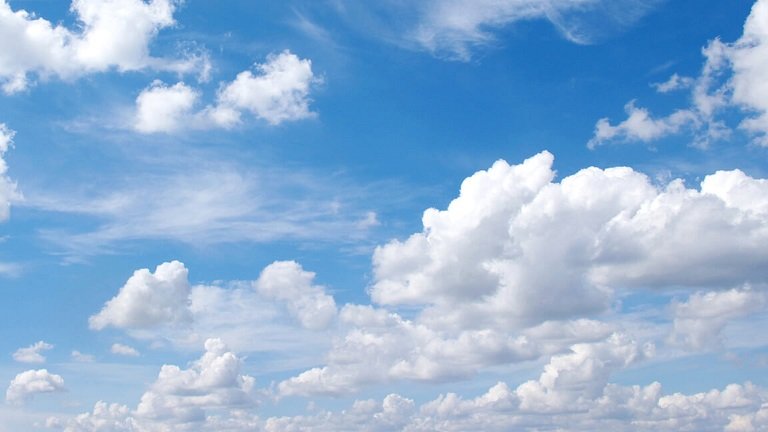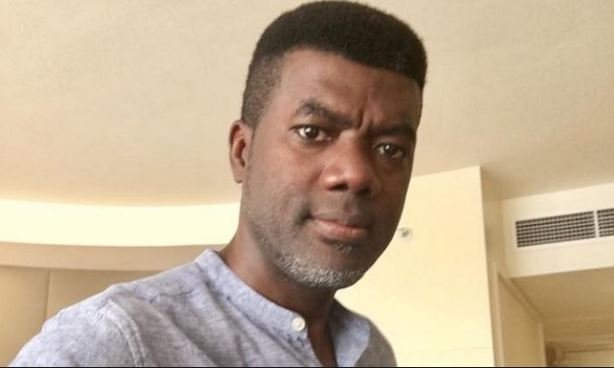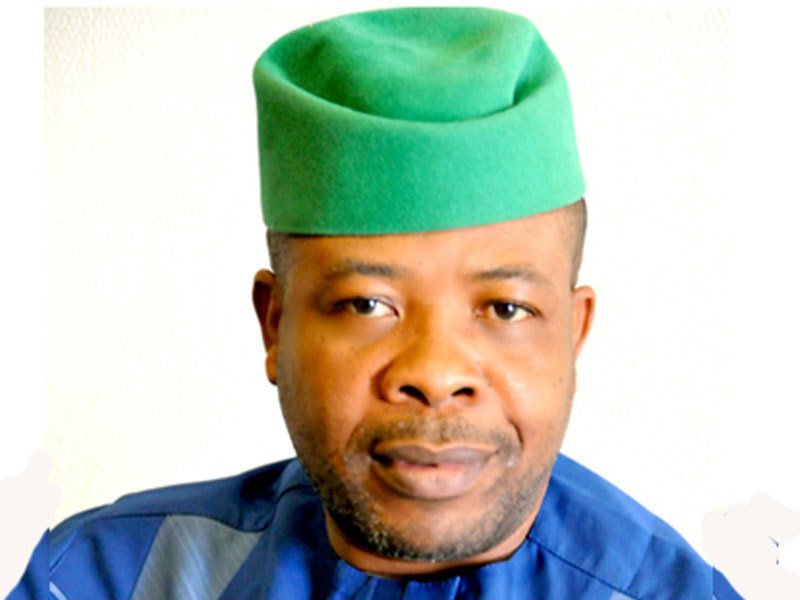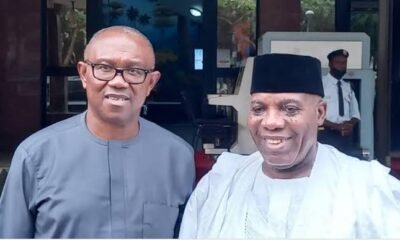Headlines News
PDP, rAPC, 37 others pick joint candidate for 2019 election
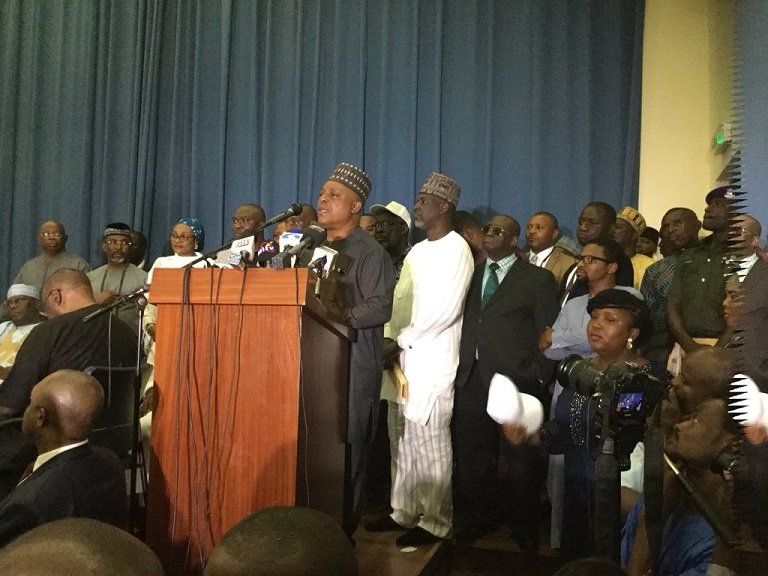

PDP national chairman Uche Secondus giving a speech after a MOU was signed by 39 political parties to oust President Muhammadu Buhari’s APC
Nigeria’s main opposition parties have agreed to form an alliance to field a joint candidate to challenge President Muhammadu Buhari in next year’s presidential election, they said in a memorandum on Monday.
Buhari’s ruling All Progressive Congress (APC) split last week when one faction declared it no longer supported his government, threatening the 75-year-old former military ruler’s hopes of securing a second term in the February 2019 elections.
The splinter group, known as the Reformed-All Progressives Congress (R-APC), the People’s Democratic Party (PDP) and 37 other political parties are in the new alliance hoping to defeat the APC.
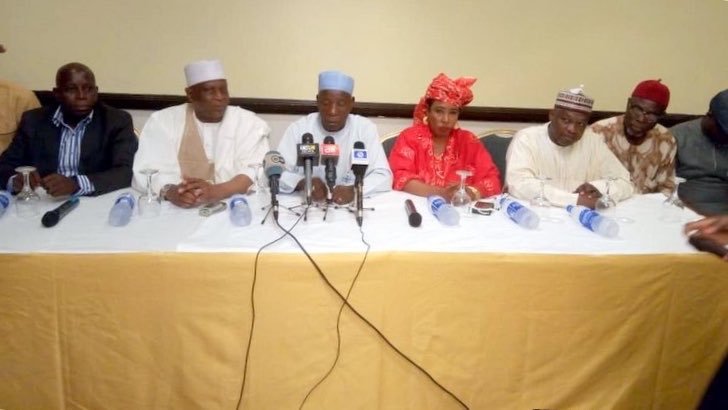
39 political parties including the PDP have signed a MOU to work as a coalition towards the 2019 election
“The parties agreed to ensure the emergence of a joint presidential candidate,” said the memorandum, which was read out by Tom Ikimi of the PDP.
“The leadership of the parties are hereby committed to work together in a Coalition of United Political Party (CUPP),” it said, adding that the modalities of the new alliance still had to be agreed.
READ: Even in Silicon Valley, Osinbajo redefining the office of Vice President
Leaders of President Olusegun Obasanjo-backed African Democratic Congress (ADC), Social Democratic Party of Nigeria (SDP), National Conscience Party (NCP), Labour Party, and a host of other newly registered parties were in attendance.
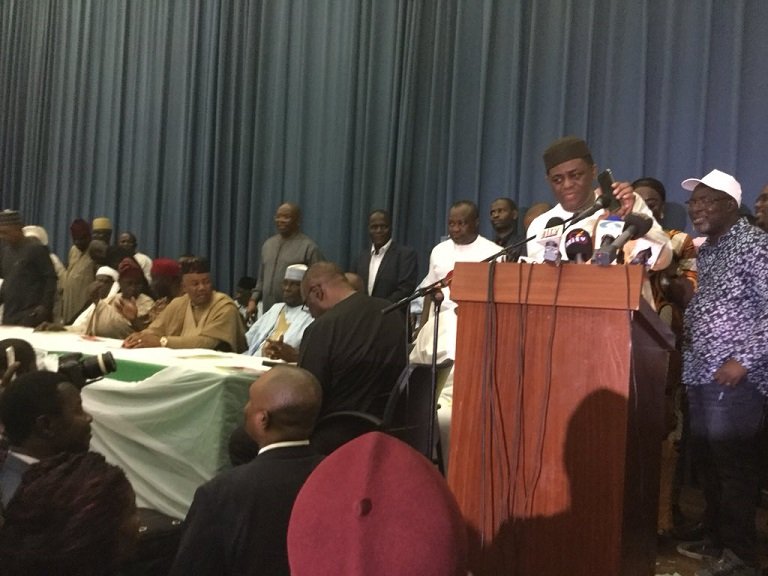
Outspoken member of PDP Femi Fani-Kayode was also at the event
Some of the parties touted as members of CUPP, such as NCP are traditionally strange bedfellows of the PDP and denials may emerge in the next few days by their leadership, as to whether they were genuinely with CUPP.
That the new group was the brainchild of the PDP was not in doubt as the party summoned all its presidential aspirants, former ministers and legislators to attend what it called a ‘crucial meeting’ at the Shehu Musa Yar’Adua Centre in Abuja.
Signatories to CUPP included Action Alliance, the unregistered association called the Reformed- All Progressives Congress (APC), Alliance for Democracy (AD), Africa Democratic Party (ADC), Action Democratic Party (ADP), and All Grand Alliance Party (AGAP), Action Peoples Party (APP), and Advanced Congress of Democrats (ACD), Better Nigeria Progressive Party, Democratic Alternative (DA), Democratic Peoples Party (DPC), Grand Democratic Party of Nigeria (GDPN), Green Party of Nigeria (GPN), KOWA Party, Labour Party (LP), Mass Action Joint Alliance (MAJA), and Masses Movement of Nigeria (MMN).
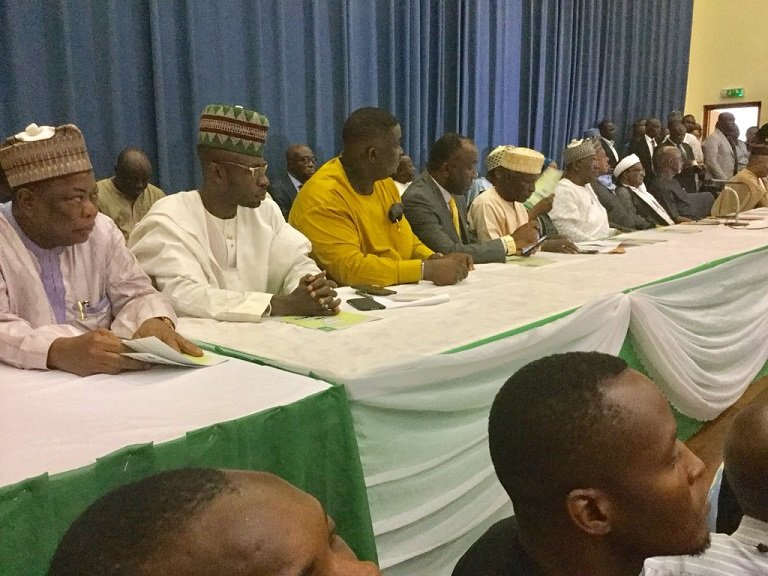
Leaders from the 39 political parties that formed a coalition
The National Conscience Party (NCP), New Generation Party (NGP), National Unity Party (NUP), Nigeria Intervention Movement (NIM), Peoples Alliance for National Development and Liberty (PANDEL), Peoples Progressive Party (PPP), People for Democratic Change (PDC), and Providence People’s Congress (PPC), Restoration Party of Nigeria (RPN), Unity Party of Nigeria (UPN), All Grassroots Alliance (AGA), National Interest Party (NIP), Nigeria Democratic Congress Party (NDCP), Progressive Peoples Alliance (PPA), and Young Democratic Party (YDP), were also part of the coalition.
The alliance could pose a major threat to Buhari’s re-election bid as the rifts within his APC threaten to split support for the president within Nigeria’s powerful patronage networks and among voters ahead of 2019 election.
Buhari announced in April that he would seek another term. His candidacy depends on party approval, though that is usually seen as a formality for the incumbent.
Political parties in Nigeria must select their candidates for the election between Aug. 18 and Oct. 7.
Nigeria is Africa’s top oil producer and richest economy. It plays a key role in the regional fight against Islamist militants.


